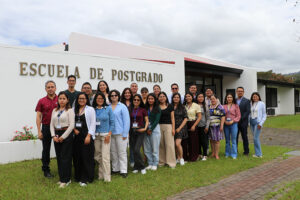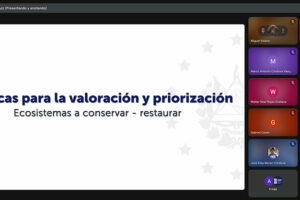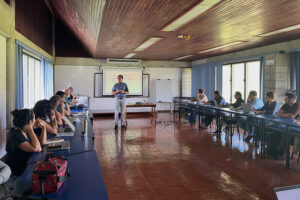Regional Exchange in Costa Rica Promotes Climate Change Adaptation through Nature-Based Solutions
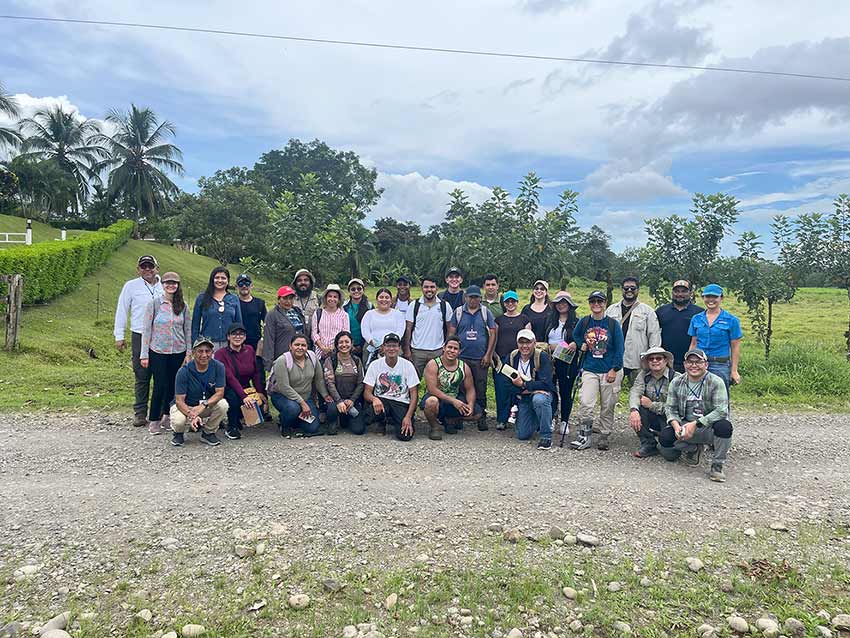
- Strengthening climate resilience, peace, and security in rural landscapes of Latin America through peer-to-peer learning
On Wednesday, August 20, 2025, a regional exchange tour took place in Sarapiquí, Costa Rica, organized within the framework of the alliance between the Program “Scaling Ecosystem-based Adaptation Measures in Rural Latin America” (EbA LAC) and the Project “Peace, Action, Resilience, and Sustainability in Latin American Landscapes” (PARES). Both initiatives work in a complementary way to strengthen the resilience of rural communities through the sustainable management of ecosystem services, with an approach that integrates participatory governance, ecosystem restoration, and the building of peace and stability.
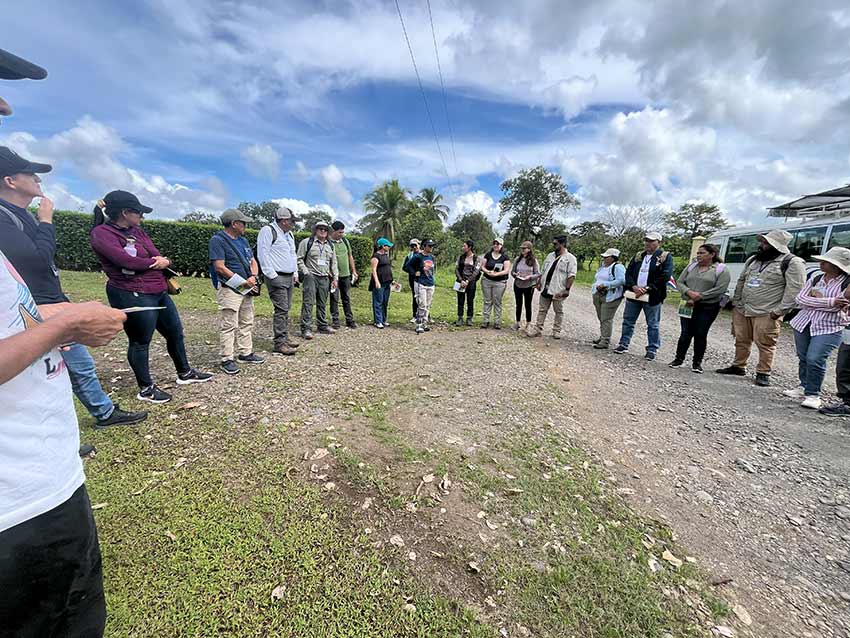
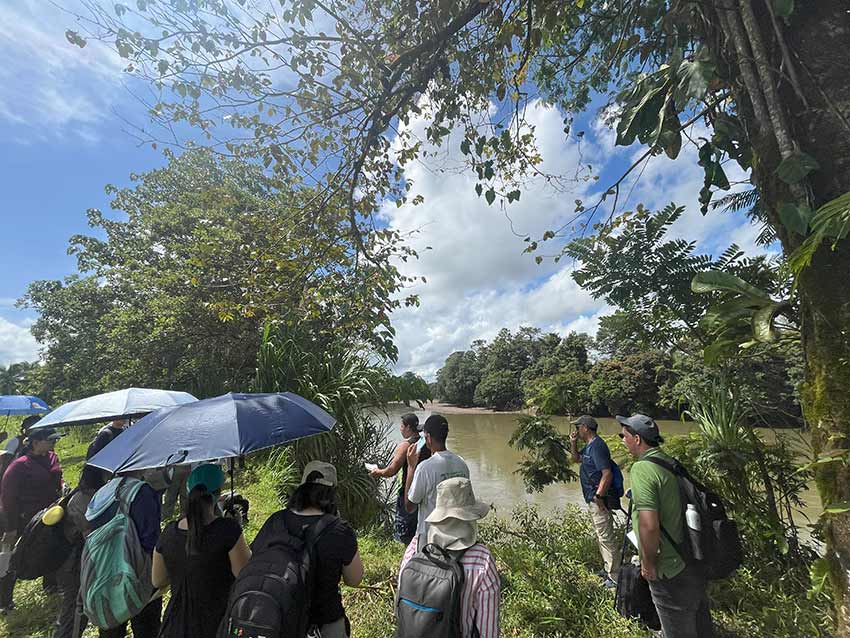
CATIE (Tropical Agricultural Research and Higher Education Center), as a strategic partner in both programs, leads the technical implementation of the PARES Project in participating countries and promotes practical learning and the strengthening of local capacities by facilitating exchange spaces—such as this tour—that connect concrete experiences with territorial transformation processes. These actions are also carried out in parallel within the framework of the EbA LAC Program, in collaboration with the IUCN (International Union for Conservation of Nature) – Regional Office for Mexico, Central America, and the Caribbean (ORMACC).
As part of efforts to strengthen territorial capacities, the tour brought together 24 representatives of local organizations from Mexico, Guatemala, El Salvador, Honduras, Colombia, and Ecuador, all engaged in processes of climate adaptation and sustainability in their landscapes. The objective was to exchange practical knowledge and learn from successful cases of implementing ecosystem-based adaptation (EbA) and restoration measures, with a focus on nature-based solutions (NbS).
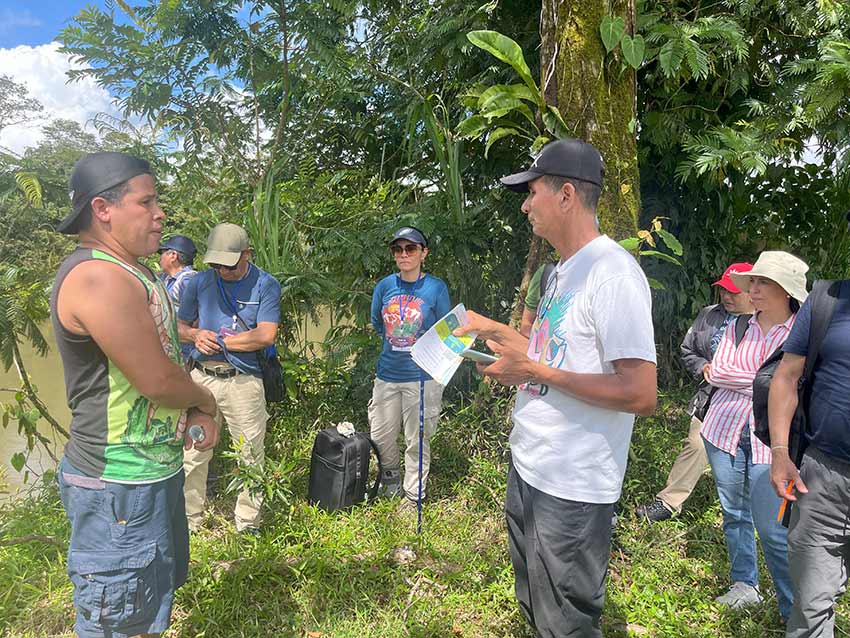
During the day, participants had the opportunity to learn first-hand about experiences promoted by the EbA LAC Program in Costa Rica, including restoration, bio-inputs, and payment for environmental services. This experience served as a practical reference to inspire the implementation of pilot projects under the PARES Project, promoting South-South exchange and the development of solutions adapted to local realities.
The tour included visits to local initiatives that highlight the articulation between organizations and local actors with the EbA LAC Program, including:
- The Sarapiquí Municipal Restoration Route, promoted by the local government to restore strategic areas with community participation;
- The scaling-up of bio-inputs in banana, cassava, and pepper production systems, led by the MAG extension agency and local organizations;
- An exchange space on Payment for Environmental Services (PES), facilitated by the San Carlos Forestry Development Commission (CODEFORSA), addressing practical conservation and financing tools.
These experiences demonstrated concrete results in the conservation of natural resources, sustainable production, collaborative governance, and the financial sustainability of EbA measures.
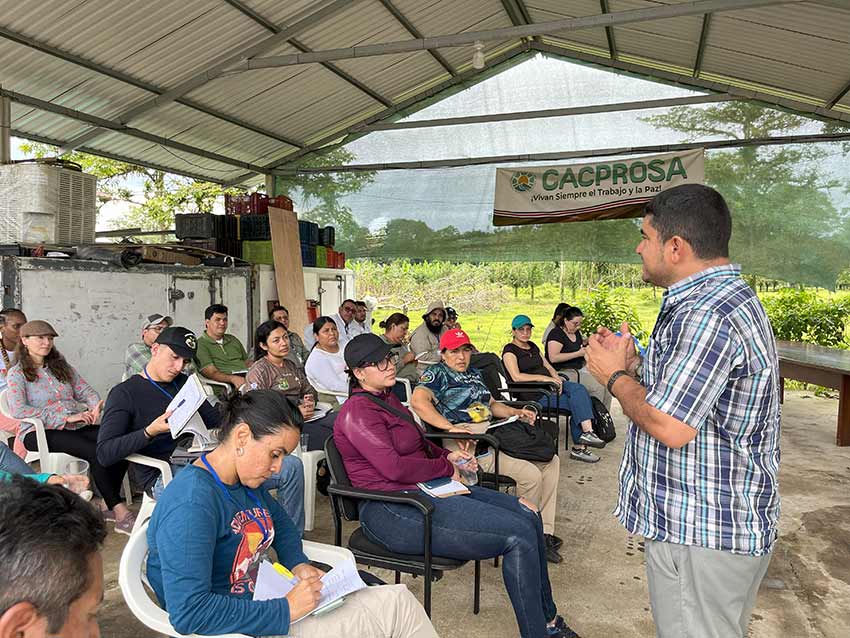
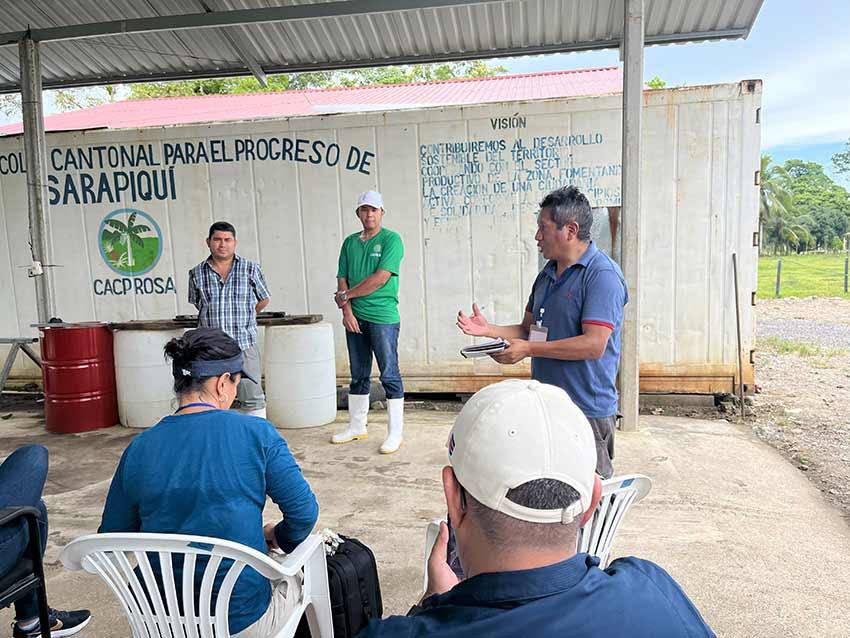
The tour contributed to strengthening peer-to-peer learning, allowing participants to learn about success stories that inspire the implementation of their own pilot projects for climate change adaptation, from an approach that promotes peace, security, and sustainability in rural territories. The exchange also fostered reflections on how nature-based solutions, specifically the EbA approach, can be an effective pathway to reduce vulnerabilities, manage climate risks, and strengthen social cohesion in local communities.
About
The PARES Project is funded by the European Union (EU) and implemented in collaboration with UNEP and CATIE. Its objective is to contribute to climate resilience and security in rural landscapes through nature-based solutions and the articulation of local actors in governance processes.
Meanwhile, the EbA LAC Program is funded by the German Federal Ministry for the Environment, Climate Action, Nature Conservation, and Nuclear Safety (BMUKN) through the International Climate Initiative (IKI) and implemented by GIZ as the lead agency, together with the International Union for Conservation of Nature (IUCN) and CATIE, in Ecuador, Guatemala, and Costa Rica.
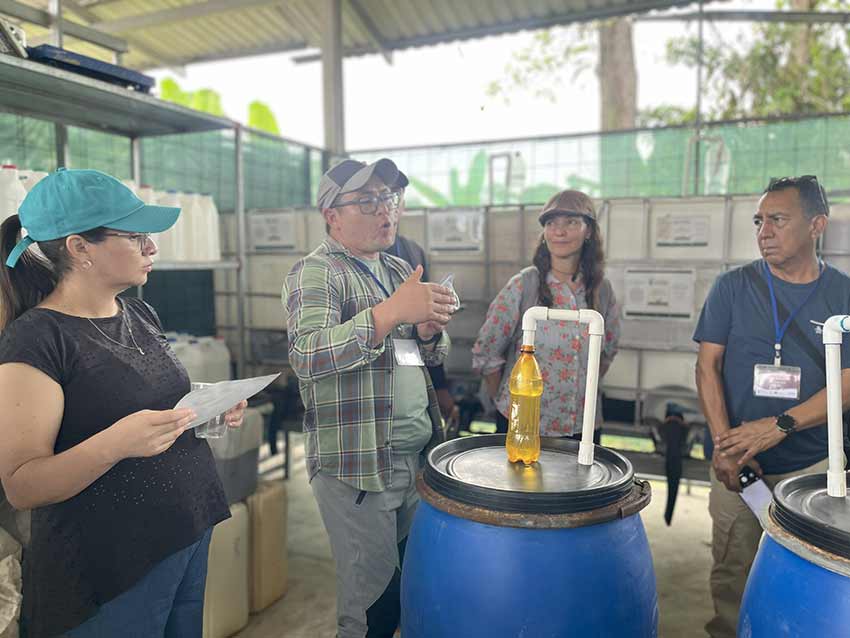
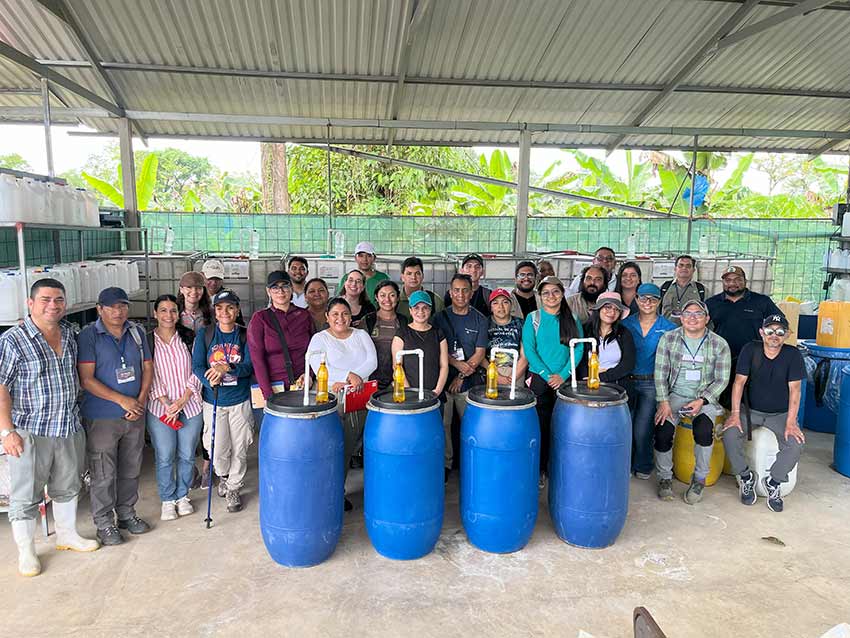
More information/written by:
Ileana Ávalos
PARES Project Coordinator
Climate Action Unit
CATIE
ileana.avalos@catie.ac.cr
Pavel Rivera
Economics Specialist
Programa EbA-LAC
UICN
pavel.rivera@iucn.org

